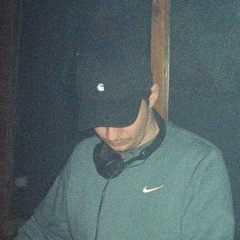"Россия гибнет", "России больше нет", "вечная память России", слышу я вокруг себя.
Но передо мной - Россия: та, которую видели в устрашающих и пророческих снах наши великие писатели; тот Петербург, который видел Достоевский; та Россия, которую Гоголь назвал несущейся тройкой.
Россия - буря. Демократия приходит "опоясанная бурей", говорит Карлейль.
России суждено пережить муки, унижения, разделения; но она выйдет из этих унижений новой и - по-новому - великой.
В том потоке мыслей и предчувствий, который захватил меня десять лет назад, было смешанное чувство России: тоска, ужас, покаяние, надежда.
То были времена, когда царская власть в последний раз достигла, чего хотела: Витте и Дурново скрутили революцию веревкой; Столыпин крепко обмотал эту веревку о свою нервную дворянскую руку. Столыпинская рука слабела. Когда не стало этого последнего дворянина, власть, по выражению одного весьма сановного лица, перешла к "поденщикам"; тогда веревка ослабла и без труда отвалилась сама.
Все это продолжалось немного лет; но немногие годы легли на плечи как долгая, бессонная, наполненная призраками ночь.
Распутин - всё, Распутин - всюду; Азефы разоблаченные и неразоблаченные; и, наконец, годы европейской бойни; казалось минуту, что она очистит воздух; казалось нам, людям чрезмерно впечатлительным; на самом деле она оказалась достойным венцом той лжи, грязи и мерзости, в которых купалась наша родина.
Что такое война?
Болота, болота, болота; поросшие травой или занесенные снегом; на западе - унылый немецкий прожектор - шарит - из ночи в ночь; в солнечный день появляется немецкий фоккер; он упрямо летит одной и той же дорожкой; точно в самом небе можно протоптать и загадить дорожку; вокруг него разбегаются дымки: белые, серые, красноватые (это мы его обстреливаем, почти никогда не попадая; так же, как и немцы - нас); фоккер стесняется, колеблется, но старается держаться своей поганой дорожки; иной раз методически сбросит бомбу; значит, место, куда он целит, истыкано на карте десятками рук немецких штабных; бомба упадет иногда - на кладбище, иногда - на стадо скотов, иногда - на стадо людей; а чаще, конечно, в болото; это - тысячи народных рублей в болоте.
Люди глазеют на все это, изнывая от скуки, пропадая от безделья; сюда уже успели перетащить всю гнусность довоенных квартир: измены, картеж, пьянство, ссоры, сплетни.
Европа сошла с ума: цвет человечества, цвет интеллигенции сидит годами в болоте, сидит с убеждением (не символ ли это?) на узенькой тысячеверстной полоске, которая называется "фронт".
Люди - крошечные, земля - громадная. Это вздор, что мировая война так заметна: довольно маленького клочка земли, опушки леса, одной полянки, чтобы уложить сотни трупов людских и лошадиных. А сколько их можно свалить в небольшую яму, которую скоро затянет трава или запорошит снег! Вот одна из осязаемых причин того, что "великая европейская война" так убога.
Читать далее: http://az.lib.ru/b/blok_a_a/text_1918_intelligentzia_i_revolutzia.shtml
Александр Блок
Интеллигенция и Революция
1918
Но передо мной - Россия: та, которую видели в устрашающих и пророческих снах наши великие писатели; тот Петербург, который видел Достоевский; та Россия, которую Гоголь назвал несущейся тройкой.
Россия - буря. Демократия приходит "опоясанная бурей", говорит Карлейль.
России суждено пережить муки, унижения, разделения; но она выйдет из этих унижений новой и - по-новому - великой.
В том потоке мыслей и предчувствий, который захватил меня десять лет назад, было смешанное чувство России: тоска, ужас, покаяние, надежда.
То были времена, когда царская власть в последний раз достигла, чего хотела: Витте и Дурново скрутили революцию веревкой; Столыпин крепко обмотал эту веревку о свою нервную дворянскую руку. Столыпинская рука слабела. Когда не стало этого последнего дворянина, власть, по выражению одного весьма сановного лица, перешла к "поденщикам"; тогда веревка ослабла и без труда отвалилась сама.
Все это продолжалось немного лет; но немногие годы легли на плечи как долгая, бессонная, наполненная призраками ночь.
Распутин - всё, Распутин - всюду; Азефы разоблаченные и неразоблаченные; и, наконец, годы европейской бойни; казалось минуту, что она очистит воздух; казалось нам, людям чрезмерно впечатлительным; на самом деле она оказалась достойным венцом той лжи, грязи и мерзости, в которых купалась наша родина.
Что такое война?
Болота, болота, болота; поросшие травой или занесенные снегом; на западе - унылый немецкий прожектор - шарит - из ночи в ночь; в солнечный день появляется немецкий фоккер; он упрямо летит одной и той же дорожкой; точно в самом небе можно протоптать и загадить дорожку; вокруг него разбегаются дымки: белые, серые, красноватые (это мы его обстреливаем, почти никогда не попадая; так же, как и немцы - нас); фоккер стесняется, колеблется, но старается держаться своей поганой дорожки; иной раз методически сбросит бомбу; значит, место, куда он целит, истыкано на карте десятками рук немецких штабных; бомба упадет иногда - на кладбище, иногда - на стадо скотов, иногда - на стадо людей; а чаще, конечно, в болото; это - тысячи народных рублей в болоте.
Люди глазеют на все это, изнывая от скуки, пропадая от безделья; сюда уже успели перетащить всю гнусность довоенных квартир: измены, картеж, пьянство, ссоры, сплетни.
Европа сошла с ума: цвет человечества, цвет интеллигенции сидит годами в болоте, сидит с убеждением (не символ ли это?) на узенькой тысячеверстной полоске, которая называется "фронт".
Люди - крошечные, земля - громадная. Это вздор, что мировая война так заметна: довольно маленького клочка земли, опушки леса, одной полянки, чтобы уложить сотни трупов людских и лошадиных. А сколько их можно свалить в небольшую яму, которую скоро затянет трава или запорошит снег! Вот одна из осязаемых причин того, что "великая европейская война" так убога.
Читать далее: http://az.lib.ru/b/blok_a_a/text_1918_intelligentzia_i_revolutzia.shtml
Александр Блок
Интеллигенция и Революция
1918
"Russia is dying", "Russia no longer exists", "the eternal memory of Russia", I hear around me.
But in front of me is Russia: the one that our great writers saw in their fearsome and prophetic dreams; the Petersburg that Dostoevsky saw; that Russia, which Gogol called the rushing troika.
Russia is a storm. Democracy comes "girdled by the storm," says Carlyle.
Russia is destined to endure torment, humiliation, division; but she will emerge from these humiliations new and - in a new way - great.
In that stream of thoughts and forebodings that gripped me ten years ago, there was a mixed feeling of Russia: longing, horror, repentance, hope.
Those were the times when the tsarist government last achieved what it wanted: Witte and Durnovo twisted the revolution with a rope; Stolypin wrapped this rope tightly about his nervous noble hand. Stolypin's hand was weakening. When this last nobleman died, power, in the words of one very dignified person, passed to "day laborers"; then the rope loosened and fell off without difficulty.
All this went on for a few years; but few years fell on our shoulders like a long, sleepless, haunted night.
Rasputin is everything, Rasputin is everywhere; Azefs exposed and unrevealed; and, finally, the years of European slaughter; it seemed for a minute that she would clear the air; it seemed to us, people, overly impressionable; in fact, she turned out to be a worthy crown of the lies, filth and abomination in which our homeland bathed.
What is war?
Swamps, swamps, swamps; overgrown with grass or covered with snow; in the west - a dull German searchlight - fumbles - from night to night; a German Fokker appears on a sunny day; he stubbornly follows the same path; as if in the sky itself you can trample and dim a path; haze scatter around him: white, gray, reddish (we fire at him, almost never hitting; just like the Germans - us); Fokker hesitates, hesitates, but tries to keep his filthy path; sometimes methodically drop a bomb; it means that the place where he is aiming is punctured on the map by dozens of hands of German staff; a bomb will sometimes fall on a cemetery, sometimes on a herd of cattle, sometimes on a herd of people; and more often, of course, into the swamp; this is thousands of rubles in a swamp.
People stare at all this, languishing with boredom, disappearing from idleness; here they have already managed to drag all the vileness of pre-war apartments: betrayal, gambling, drunkenness, quarrels, gossip.
Europe has gone mad: the flower of humanity, the flower of the intelligentsia has been sitting in a swamp for years, sitting with conviction (isn't it a symbol?) On a narrow strip of thousands of kilometers called the "front."
People are tiny, the land is huge. It is nonsense that the world war is so noticeable: a rather small piece of land, the edge of a forest, one clearing to lay hundreds of human and horse corpses. And how many of them can be dumped into a small hole, which will soon be covered with grass or covered with snow! This is one of the tangible reasons that the "great European war" is so miserable.
Read more: http://az.lib.ru/b/blok_a_a/text_1918_intelligentzia_i_revolutzia.shtml
Alexander Blok
Intellectuals and the Revolution
1918
But in front of me is Russia: the one that our great writers saw in their fearsome and prophetic dreams; the Petersburg that Dostoevsky saw; that Russia, which Gogol called the rushing troika.
Russia is a storm. Democracy comes "girdled by the storm," says Carlyle.
Russia is destined to endure torment, humiliation, division; but she will emerge from these humiliations new and - in a new way - great.
In that stream of thoughts and forebodings that gripped me ten years ago, there was a mixed feeling of Russia: longing, horror, repentance, hope.
Those were the times when the tsarist government last achieved what it wanted: Witte and Durnovo twisted the revolution with a rope; Stolypin wrapped this rope tightly about his nervous noble hand. Stolypin's hand was weakening. When this last nobleman died, power, in the words of one very dignified person, passed to "day laborers"; then the rope loosened and fell off without difficulty.
All this went on for a few years; but few years fell on our shoulders like a long, sleepless, haunted night.
Rasputin is everything, Rasputin is everywhere; Azefs exposed and unrevealed; and, finally, the years of European slaughter; it seemed for a minute that she would clear the air; it seemed to us, people, overly impressionable; in fact, she turned out to be a worthy crown of the lies, filth and abomination in which our homeland bathed.
What is war?
Swamps, swamps, swamps; overgrown with grass or covered with snow; in the west - a dull German searchlight - fumbles - from night to night; a German Fokker appears on a sunny day; he stubbornly follows the same path; as if in the sky itself you can trample and dim a path; haze scatter around him: white, gray, reddish (we fire at him, almost never hitting; just like the Germans - us); Fokker hesitates, hesitates, but tries to keep his filthy path; sometimes methodically drop a bomb; it means that the place where he is aiming is punctured on the map by dozens of hands of German staff; a bomb will sometimes fall on a cemetery, sometimes on a herd of cattle, sometimes on a herd of people; and more often, of course, into the swamp; this is thousands of rubles in a swamp.
People stare at all this, languishing with boredom, disappearing from idleness; here they have already managed to drag all the vileness of pre-war apartments: betrayal, gambling, drunkenness, quarrels, gossip.
Europe has gone mad: the flower of humanity, the flower of the intelligentsia has been sitting in a swamp for years, sitting with conviction (isn't it a symbol?) On a narrow strip of thousands of kilometers called the "front."
People are tiny, the land is huge. It is nonsense that the world war is so noticeable: a rather small piece of land, the edge of a forest, one clearing to lay hundreds of human and horse corpses. And how many of them can be dumped into a small hole, which will soon be covered with grass or covered with snow! This is one of the tangible reasons that the "great European war" is so miserable.
Read more: http://az.lib.ru/b/blok_a_a/text_1918_intelligentzia_i_revolutzia.shtml
Alexander Blok
Intellectuals and the Revolution
1918

У записи 22 лайков,
4 репостов,
663 просмотров.
4 репостов,
663 просмотров.
Эту запись оставил(а) на своей стене Сергей Григорян








































